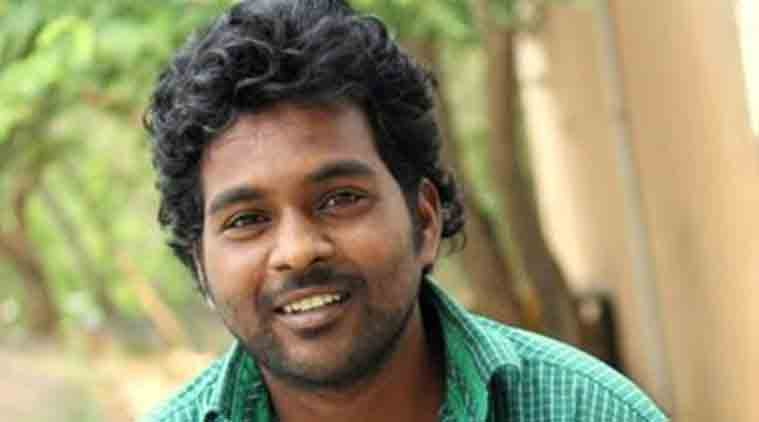- India
- International
Four years after Rohith Vemula died, the public university is still riddled with crises old and new
The erosion of autonomy began well before the current regime. Much of it was ceded by academics rather than snatched by bureaucrats or politicians.
 Rohith Vemula committed suicide on January 17.
Rohith Vemula committed suicide on January 17.
Public memory is notoriously short. Many may have already forgotten the name Rohith Vemula, the spontaneous surge of anguished emotion that it provoked across the nation and beyond, or the poignant clarity with which it illuminated the impasses of Indian higher education. The fourth anniversary of Rohith Vemula’s institutionally-enabled suicide may thus be an apt occasion to reflect on the sobering fact that, today, the critical injuries inflicted on our public universities are not those caused by lathis in uniform or iron rods in masks.
Three of these wounds are less visible but far more serious and long lasting in their effects. As his short life and moving last testament show, Rohith would have felt the pain of each one of them directly and acutely.
The first injury is the deliberate diminishing of the public university as an instrument of social justice. In a huge country like ours where enduring inequalities have deepened greatly in recent decades, public higher education seemed to offer the hope of rapid mobility at least to the top rungs of the have-nots. This became a real possibility only in this century, when a critical mass of college-eligible students from the underprivileged majority emerged for the first time in the history of our republic. Given the frantic pace at which enrolment in Indian higher education has expanded in the last two decades, it seemed that this hope was about to be converted into reality.
But as research from around the world on the recent “massification” of higher education now suggests, nowhere has this really happened. The proliferation of institutions came at the cost of highly uneven quality. The dominant groups managed to retain their disproportionate access to the better institutions, thus ensuring that higher education did not become an equalising force. For a brief while, it seemed that a strong reservation policy would enable India to evade the global trend, as the social composition of the student bodies in our elite institutions changed dramatically.
However, the combined effect of two countervailing forces seems to have postponed a positive outcome. The first is exactly what Rohith Vemula was struggling against — the subtle, informal ways in which dominant prejudices work to ensure that access in principle does not lead to inclusion in practice. The other force is the state itself, which is undoing with one hand what it is doing with the other. This is seen in the effective dilution of reservation policy as a tool of social justice by extending it to the economically backward, and in the recurrent efforts to reduce grants and raise fees. The latter policy seems particularly ill-considered because global evidence shows that, compared to the total expenditure, student fees form only a small proportion of revenues in a public university. This implies that attempts to reduce the consumer surplus accruing to affluent students do more harm than good.

The second and oldest of the grievous wounds suffered by our public universities is the crippling of their ability to promote free and rigorous thinking. It is easy to overlook the necessary relationship between the two. Rigour can only be attained through unrestrained criticism, and such criticism obviously requires freedom as its own precondition. Only when this basic need is met can students hope to soar “from the shadows to the stars”, as Rohith wrote.
The erosion of autonomy began well before the current regime. Much of it was ceded by academics rather than snatched by bureaucrats or politicians. There is an added irony in the fact that, over the past decade or so, the state has met (at least partially) the longstanding demand of academics for raising outlays on higher education, but has simultaneously taken over control of the academy.
Today this control extends far beyond the financial and statutory oversight legitimately expected of the state. The added twist provided by the current government is the overt and covert pressure that it is exerting on courses and syllabi in the social sciences and humanities to make them conform to its ideological expectations.
The third and most serious injury suffered by public universities is the newest and least visible. It is caused by the Modi regime’s ceaseless efforts to turn public opinion against universities, intellectuals, and more generally, against reasoned debate. This appears to be part of a wider global trend towards authoritarian right-wing regimes with a fondness for “alternative facts”. The Indian version is particularly potent and is helped by the jobs crisis which undermines utilitarian respect for higher education.
Criticism of the present risks making the past seem unduly rosy. Dark chapters in the history of higher education have been contributed by every political party, as the record of universities in our states amply demonstrates. Nor can it be denied that academics themselves have often played — and continue to play — stellar roles in these tragedies and farces. But even the accumulated disappointments of this tarnished past cannot match the depths to which the present regime has descended in denigrating every variety of rational, evidence-based debate.
Sometimes it seems nothing has changed in the four years since Rohith left us. Exactly the same tactics that were used against him and his comrades are being used today in several universities: Those opposed to the regime in power are first attacked and then indicted as the perpetrators. The whole drama is enacted by blatantly biased authorities and applauded by a viciously partisan media.
At other times, it seems that everything has changed. “My birth is my fatal accident”, wrote Rohith. His cry is echoed today by the many millions facing the prospect of endless punishment for the crime of having been born in one community rather than another.
“Never was a man treated as a mind”, Rohith also wrote, eerily echoing the present. As institutions devoted to the life of the mind, universities must somehow survive these times when a mind has become the most incriminating thing that a person can possess. It is only fitting that students are our best hope of survival for it is their minds that are at stake.
This article first appeared in the print edition on January 17, 2020 under the title ‘Where the mind is with fear’. The writer teaches sociology at Delhi University.
EXPRESS OPINION
More Explained
Apr 19: Latest News
- 01
- 02
- 03
- 04
- 05









































